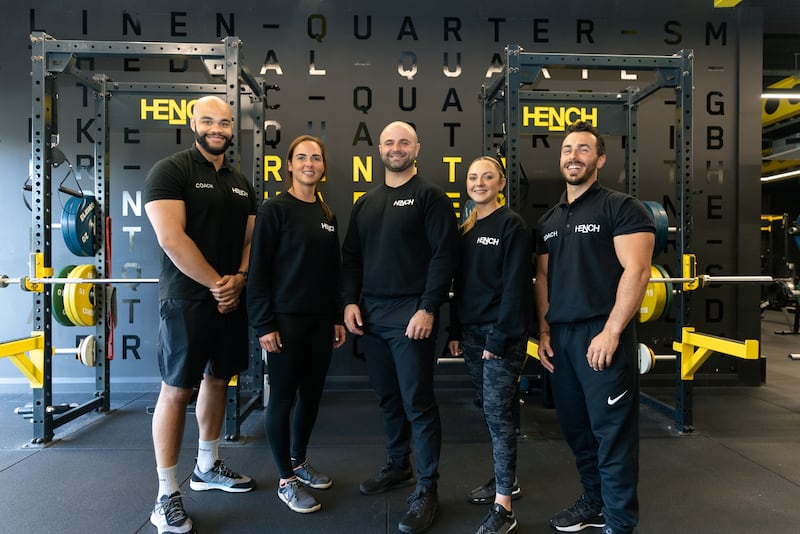With Valentine’s Day behind us and 2024 now in full swing, the potency of using the New Year as a quick win to spark motivation may now be waning. But don’t worry if the plans you set at the beginning of the year to get started on a new fitness regime or kick it up a gear have already been scuppered. Thankfully, when you start matters less than how you approach it and why you are doing it in the first place.
I’ll immediately contradict this advice with the caveat that if you are leading a busy life, then using every piece of low-hanging fruit you can get your hands on is essential. So, if you’ve got a landmark birthday, big occasion, or special trip coming up, then use the opportunity for a burst of motivation from nowhere.
The fitness journey is unique for everyone, and the path you choose should reflect your personal goals, values, lifestyle, and, most importantly, what you enjoy
Whatever you use to spark the embers, the next step is transforming the initial motivation into drive and thus consistency, which was covered in the last article. To recap, the key to achieving your fitness goals involves taking a realistic, enjoyable, flexible approach that resonates with your innate interests rather than a drastic overhaul. Align your reasons to train with your purpose in life, become gradually more independent, and take incremental steps towards mastering what you’re doing.
With the stakes being so high physically, mentally, and emotionally to get this right, it’s important that the mindset which you approach exercise works in favour of and not against the possibility of a positive outcome. The ‘swimming upstream’ approach, which many people adopt going into a new exercise regime, is at odds with what is proven to work best, in reality... So, here’s a rough outline of what this entails, and what most people should avoid:
Avoid diving into intense exercise immediately
Don’t ignore the gradual approach and jump straight into high-intensity workout routines from the start, regardless of your current fitness level or lifestyle.
Avoid prioritising discipline over enjoyment
Don’t focus solely on discipline and willpower to push through workouts, disregarding whether you actually enjoy the activities you’re doing.

Avoid setting rigid, high-stakes goals
Instead set realistic, achievable goals, and don’t aim for ambitious targets that require drastic changes in a short timeframe as this will just set the stage for disappointment if not met.
Avoid overhauling your lifestyle overnight
Don’t completely change your diet, sleep schedule and daily routines immediately to align with an idealised fitness regimen, without considering the sustainability or impact on your wellbeing.
Avoid ignoring personal preferences and interests
Don’t choose your workout based solely on what is perceived to yield the quickest results, rather than what aligns with your interests, curiosity, or enjoyment.
Don’t completely change your diet, sleep schedule and daily routines immediately to align with an idealised fitness regimen, without considering the sustainability or impact on your wellbeing
Avoid setting a fixed routine regardless of life’s demands
Don’t try to maintain a strict workout schedule without allowing for flexibility, regardless of how it fits with your other responsibilities or how it affects your enjoyment.
Absolutely avoid comparing your progress to others constantly
Never measure your success by comparing your achievements and progress directly with others, rather than focusing on personal growth and improvement.
Please avoid neglecting mental health benefits
Try not to focus exclusively on physical outcomes like weight loss or muscle gain – remember the mental health benefits and the holistic wellbeing that comes with regular, enjoyable physical activity.
Swimming upstream prioritises immediate, often unrealistic results over long-term health, enjoyment and sustainability. Be realistic and make the benefits of exercise become self-apparent.
Swim downstream
Swimming downstream with an imperfect, flexible, and enjoyable plan eventually leads to making progressively more ‘intense’ training feel fun, at which point your original goals (results, progress, or outcomes) simply become both a product and part of this virtuous cycle.
There will also be challenges, and this won’t be easy, but going with the flow is the most effective way to achieve your fitness goals. “The obstacle is the way” is still an inescapable part of this, but discomfort is traded for growth and resilience.
As we look ahead, remember that the fitness journey is unique for everyone, and the path you choose should reflect your personal goals, values, lifestyle, and, most importantly, what you enjoy.
In the next column, based on the latest research and real data from Hench, we’ll explore the minimum effective dose needed to achieve your goals to look, feel, or perform better, and why less can sometimes be more.
Here’s to finding your momentum in the fitness journey, making each rep or step count, and turning challenges into opportunities for growth and resilience. The road may not always be easy, but by utilising an approach that emphasises mind over matter, we can take steps to become stronger for life.







